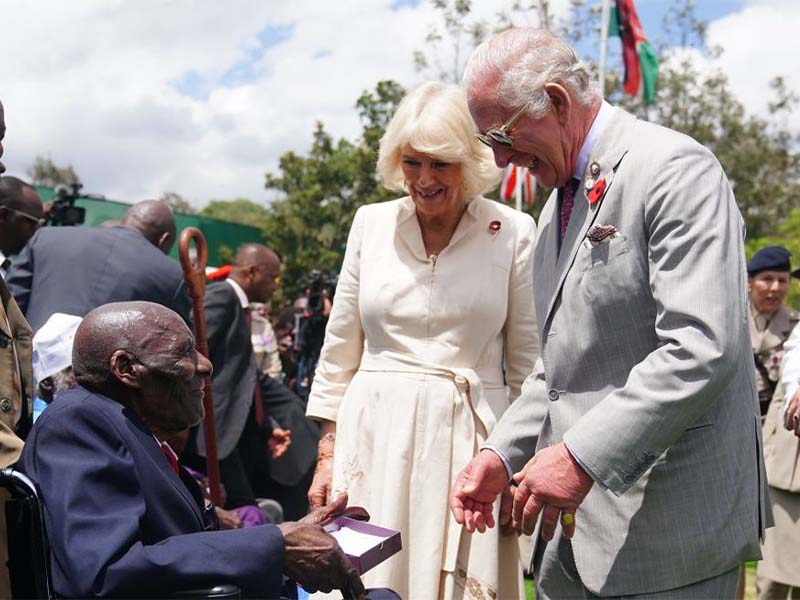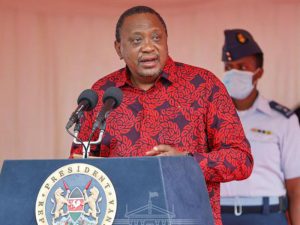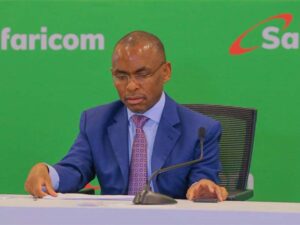King Charles III and Queen Camilla’s state visit to Kenya in October 2023 sparked controversies and demands for a public apology due to the injustices inflicted by the British government during the colonial era. Kenyan citizens, along with the Kenyan Human Rights Commission (KHRC), took to the streets before the royal couple’s arrival, seeking acknowledgement and accountability for the historical grievances.

- READ ALSO: How President Ruto Arrested Government Workers, Demanding Ksh 400K for Ksh 86K in Equipment.
This visit coincided with growing demands for formal apologies and reparations from former British colonies.
The call for an apology
KHRC called on King Charles III to issue an unequivocal public apology for the brutal treatment Kenyan citizens endured during colonial rule.
They pointed out that the British government’s response to these historical injustices has been insufficient. In 2002, KHRC initiated a lawsuit that concluded in 2013 with an extrajudicial resolution.
The resolution provided some compensation to claimants and funded the creation of a monument at Freedom Corner in Nairobi. However, it fell short of offering a formal apology, which remains a crucial point of contention.
The Royal response and political challenges
During the state visit, King Charles III acknowledged the painful history of Britain’s relationship with Kenya, including acts of violence committed against Kenyans during their struggle for independence.
However, he stopped short of issuing a formal apology. This lack of apology raised concerns and fueled the argument that the British monarchy was unwilling to acknowledge its historical wrongdoings.
According to Senator Joe Nyutu, apologizing for colonialism could be seen as admitting guilt for the atrocities committed, and this might be politically challenging for the British monarch, who has a constitutional role but no direct involvement in legislation or governance.
It is undeniable that the British colonial administration in Kenya was marked by numerous injustices, including forced labour, assassinations, land dispossession, and political repression.
The Mau Mau rebellion, a significant armed movement in the 1950s, was a response to the oppression experienced by the Kikuyu tribe and others under British rule.
Controversies behind the visit
The controversy lies in choosing a stance on the efforts of KHRC in seeking historical justice. Archbishop Desmond Tutu’s words, “If you are neutral in situations of injustice, you have chosen the side of the oppressor,” emphasize the importance of addressing past wrongs.
Despite these ongoing efforts to seek justice, King Charles III and Queen Camilla’s state visit to Kenya had a different agenda, focusing on mutual prosperity, climate change, youth opportunities, sustainable development, and regional stability.
The visit represents a setback for KHRC’s quest for justice, as their concerns were not fully addressed. While some appreciated the king’s acknowledgement of historical grievances, the issue of compensation and atonement for past wrongs remains unresolved, with the hope for justice hinging on the Kenyan political system.
The controversies behind King Charles III and Queen Camilla’s State Visit to Kenya highlight the ongoing struggle to address the legacy of colonialism and the call for accountability.
I’m a versatile content writer, mentor and pro cyclist.





